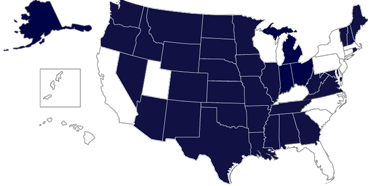In Response to Opposition of the State Authorization Reciprocity Agreements
Published by: WCET | 3/29/2016
Tags: Access, Accreditation, Reciprocity, Regulation, SARA, State Authorization, Student Success
Published by: WCET | 3/29/2016
Tags: Access, Accreditation, Reciprocity, Regulation, SARA, State Authorization, Student Success
This post originally appeared as an opinion piece in Inside Higher Ed. Thanks to Phil Hill, e-Literate, and Russ Poulin, WCET, for debumking the myths being spread about SARA in New York.
A coalition of consumer groups, legal aid organizations and unions object to the state of New York joining an agreement that would change how colleges offering distance education courses in the state would be regulated. As coalition members asserted in an Inside Higher Ed article, the state would be ceding its authority to other states. Students would be left with no protection from predatory colleges and it would make it easier for “bad actors to take advantage of students and harder for states to crack down on them.”
That all sounds ominous. It would be, if it were true.

Even in the digital era, the regulation of educational institutions is left to each state. The resulting array of requirements confuses both students and institutional faculty and staff. The State Authorization Reciprocity Agreement (SARA) was created to apply consistent review standards across the states. An institution approved in its home state is eligible to enroll students (within limits) in any other SARA member state. As of this writing, 36 states have joined in a little over two years. That number may approach 45 by the end of 2016.
SARA means now there is a consistently-applied set of regulations over distance education when students from one state take courses from an institution in another SARA state. Chief critic Robert Shireman, a senior fellow at the Century Foundation and former official at the U.S. Department of Education, cites Iowa as proof that “some states have discovered they can’t add more qualifications,” as if that were a surprise. Reciprocity agreements depend upon consistency. If Iowa wishes to change a policy, there is a process for regulators in the state to suggest a change. States enter into the agreement openly knowing that consistency is a requirement.
To be fair, New York has been aggressive in pursuing bad actors in the for-profit education sector, as evidenced by its $10.25 million settlement with Career Education Corporation. It is worth noting, however, that the lawsuit was largely based on brick-and-mortar schools that have nothing to do with SARA. In addition, this action was brought by the New York attorney general’s office and was not the result of education-based regulation. There is a relevant section in the SARA policy stating that nothing precludes “a state from using its laws of general application to pursue action against an institution that violates those laws” and another stating that “nothing precludes the state in which the complaining person is located from also working to resolve the complaint”.
The reality of SARA hardly qualifies as “ceding the ability to guard its citizens against abusive practices” as a Century Foundation letter objecting to New York signing the SARA agreement claims.
What would be lost if New York were not to sign the SARA agreement? There is certainly a downside for institutions offering distance education courses and programs for out-of-state students. It might surprise readers of the letter, but fully 70 percent of students who take all of their courses at a distance do so from public and non-profit institutions. Institutions like Empire State College, a long-time leader in distance education that is part of the SUNY system. Furthermore, the large for-profit institutions referenced in the article have the budget and history of obtaining state-by-state approval already. It is the smaller profile non-profits that have the most difficulty in obtaining authorization to serve students in different states.
A reciprocity agreement between Massachusetts and Connecticut is cited as an alternative. As best we can tell, it allows each state to continue using its own current regulations. This is not reciprocity and does not improve the consumer protection landscape for students or institutions.
Were New York to avoid signing the agreement, students who live in the state would end up with fewer choices, primarily from fewer non-profit institutions that can operate there. Under SARA, New York students actually would have more consumer protection than currently exists as well as regulatory support for any complaint process, including from in-state agencies. Additionally, states systematically working in concert through SARA will more quickly find and deal with institutions that treat students poorly. This is far better than hypothetical, unfunded regulatory oversight by New York trying to operate independently from any other state.
New York has the opportunity to sign an agreement that would expand the regulatory oversight of distance education programs, would leave the state with the same ability to go after bad actors as they have done in the past and would increase choices for resident students — particularly working adults — seeking to get a valuable degree that is only enabled by distance education. It would be a mistake to let a complaint based on hypotheticals and misrepresentations of reality derail this progress.
 Phil Hill
Phil Hill
MindWires Consulting
e-Literate blog
 Russ Poulin
Russ Poulin
Director, Policy & Analysis
WCET – the WICHE Cooperative for Educational Technologies